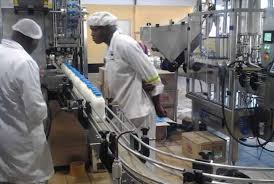
In its latest trading update for the period ended March 31, 2025, dairy producer Dairibord Holdings Limited revealed that an erratic supply of power and water in the first quarter forced the company to rely on expensive alternatives, driving up its operating costs. The utility challenges came amid constrained liquidity and cost-push pressures, underscoring the urgent need for more reliable infrastructure to support Kenya’s growing dairy sector.
Utilities Shortfall Drives Up Costs
Dairibord’s managers noted that over recent years, funding shortfalls have weakened the ability of utility providers to meet rising demand. During Q1 2025, intermittent electricity and water outages left the company scrambling for backup generators and tanker-delivered water.
“The operating environment continued to present significant challenges during the quarter under review. Principal among these were constrained liquidity and cost-push pressures,” Dairibord said in its trading update. “The erratic supply of utilities further compounded these challenges, requiring the use of expensive alternatives for power and water, thereby contributing to the escalation in operating costs.”
Local plant managers confirmed that fuel costs for generators jumped by nearly 30% compared to the same period last year, while water delivery charges rose by 40%. For a perishable-goods producer like Dairibord, even short interruptions can mean lost output and product spoilage.
Strategic Shift in Retail and Route-to-Market
Facing these headwinds, Dairibord has accelerated its shift in retail strategy and route-to-market dynamics. The company highlighted continued pricing distortions in the formal retail channel and said an agile approach was critical.
“Additionally, sustained pricing distortions continued to exert considerable pressure on the formal retail channel, necessitating a strategic shift requiring agility and adaptation to evolving route-to-market dynamics,” the update stated. Field teams have begun piloting direct-to-vendor deliveries and smaller hub models to reduce dependency on large supermarkets and cut distribution costs.
Volume Growth Despite Challenges
Remarkably, Dairibord’s volume growth held strong in Q1 2025. Consolidated sales volumes rose by 14% year-on-year, reflecting the company’s investment in capacity and production scale-up.
- Beverages led the pack with a 24% increase, driven by Pfuko maheu and Quickbrew tea.
- Foods, anchored by yoghurts and Robroy tomato sauce, grew 19%.
- Liquid milk saw a 6% decline, affected by production disruptions at the Steri Milk plant and the diversion of milk towards higher-margin yoghurt production.
Beverages accounted for 66% of total volumes, liquid milk 25% and foods 9%. Plant supervisors credit production scale-up efforts and smarter scheduling for keeping shelves stocked even during utility outages.
Export Performance Boosts Foreign Currency Generation
Dairibord also reported a 36% year-on-year rise in export volumes, strengthening its foreign currency earnings. The February announcement of expanded regional production capabilities, including ramped-up output of Steri Milk at its South African toll manufacturing plant, has begun to pay dividends.
“Revenue for the quarter reached US$31.3 million, an 18% increase over the same period last year, reflecting the combined effect of volume growth and a favorable product mix,” the company said. It added that the share of sales volumes denominated in US dollars climbed from 85% to 95% year-on-year, insulating Dairibord from local currency volatility.
Looking Ahead: Cost Management and Capacity Expansion
Despite the utility setbacks, Dairibord remains bullish on sustained growth into Q2 and beyond. Management plans to continue prioritizing cost management and positive cash generation, while rolling out enhanced capacity projects across key brands.
“Growth momentum is expected to continue into the second quarter, supported by consistent product supply resulting from enhanced capacity across key brands,” Dairibord said. The company is also engaging with utility providers and county authorities to advocate for infrastructure investments that would stabilize power and water delivery for industrial users.
For Dairibord and the broader dairy sector, the Q1 utility crisis is both a setback and a wake-up call. It highlights the fragility of production systems without reliable infrastructure, but it also demonstrates the resilience and adaptability of Kenya’s leading dairy producers in the face of rising challenges.
Original article written by By Tatira Zwinoira
Stay updated with the latest farming tips and agriculture industry news from Africa by subscribing to our newsletter. Don’t miss out on valuable insights and updates. Follow us on Twitter, LinkedIn, and Facebook to join our farming community and stay connected with us.


















